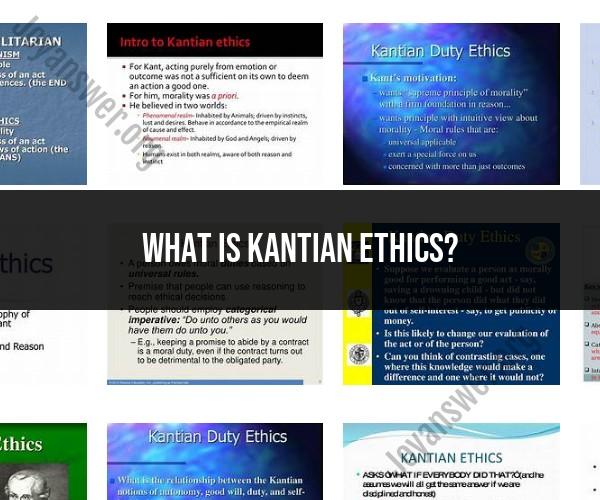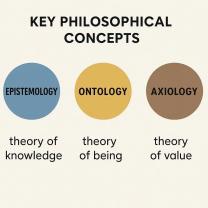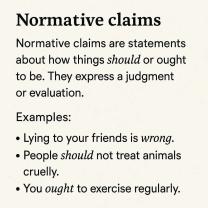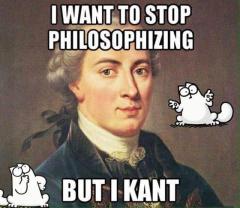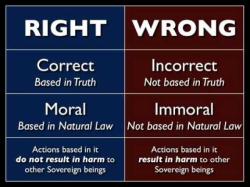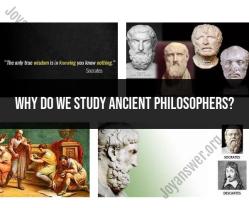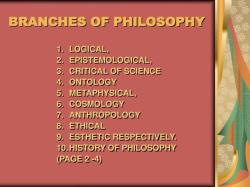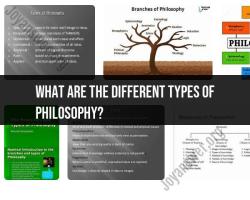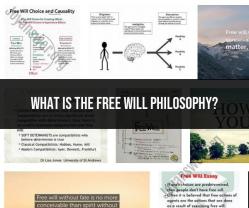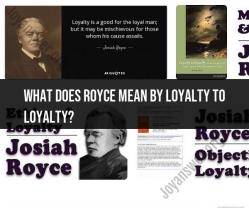What is Kantian ethics?
Kantian ethics, also known as deontological ethics, is a moral philosophy developed by the 18th-century German philosopher Immanuel Kant. Kantian ethics is characterized by its emphasis on moral principles, duties, and the intrinsic value of morality itself. It provides a framework for determining the moral rightness or wrongness of actions based on rational principles rather than the consequences of those actions. Here are some key elements of Kantian ethics:
Autonomy and Rationality: Kantian ethics places a strong emphasis on the moral autonomy and rationality of individuals. Kant believed that moral agents possess the capacity for rational thought and are capable of making moral judgments based on reason.
Categorical Imperative: Central to Kantian ethics is the concept of the categorical imperative. The categorical imperative is a moral principle that commands individuals to act according to maxims or principles that could be universalized without contradiction. In other words, an action is morally permissible if it could be consistently willed as a universal law that applies to everyone.
Formula of Universal Law: This formulation of the categorical imperative states that you should act only according to principles that you could will to become a universal law of nature. It tests the moral permissibility of an action by considering whether the action's maxim is logically consistent when made universal.
Formula of Humanity: This formulation emphasizes the intrinsic value of all rational beings. It states that individuals should act in a way that treats humanity, whether in themselves or others, always as an end and never merely as a means to an end. It prohibits using people solely as instruments for achieving one's own goals.
Duty and Moral Obligation: Kantian ethics is duty-based, meaning that it emphasizes the importance of fulfilling one's moral duties and obligations regardless of the consequences. Moral actions are those performed out of a sense of duty, rather than for personal gain or the pursuit of happiness.
Moral Rules and Maxims: Kantian ethics provides a set of moral rules and maxims that guide decision-making. These rules are derived from the categorical imperative and serve as a basis for determining the moral permissibility of specific actions.
Good Will: According to Kant, the only thing that is intrinsically good is a "good will," which is the will to do what is morally right for its own sake, not for any other motive.
Non-Consequentialism: Kantian ethics is non-consequentialist, meaning that it evaluates the morality of actions independently of their outcomes. Unlike consequentialist theories like utilitarianism, Kantian ethics does not judge the morality of actions based on their consequences.
Universalizability and Consistency: Kantian ethics requires that moral principles and actions be universalizable, meaning that they must be capable of being consistently applied to all rational beings without generating contradictions.
Kantian ethics has had a profound influence on moral philosophy and continues to be a significant framework for ethical reasoning. It provides a clear and systematic approach to ethics that emphasizes rationality, moral principles, and the intrinsic value of morality itself. However, it also faces criticisms and challenges, including questions about the practicality of applying the categorical imperative in real-world moral dilemmas.
